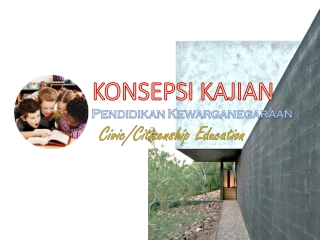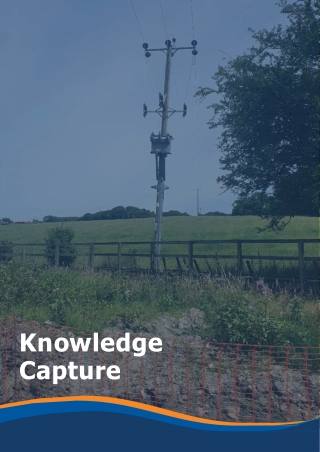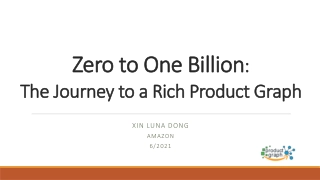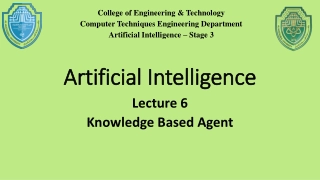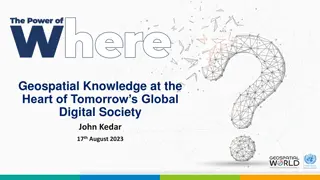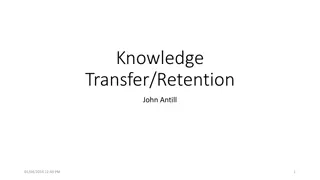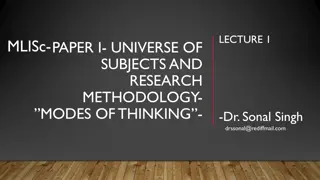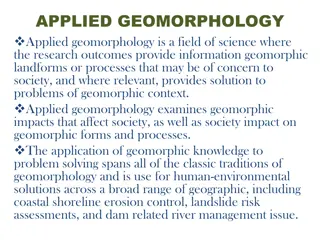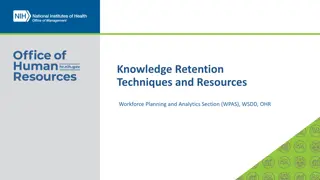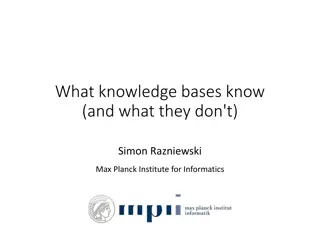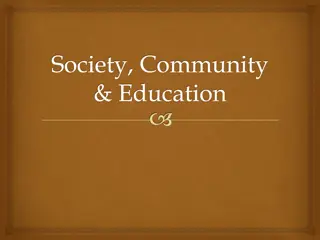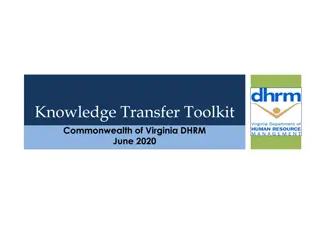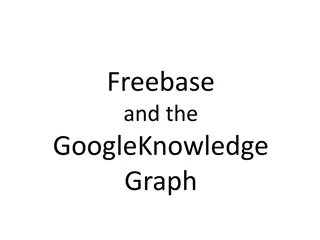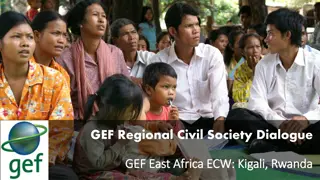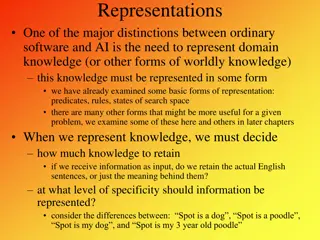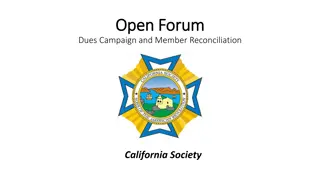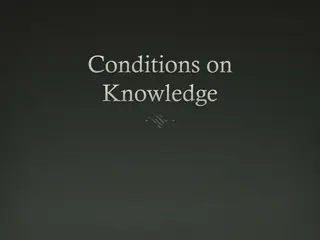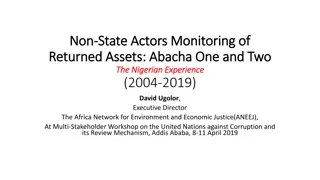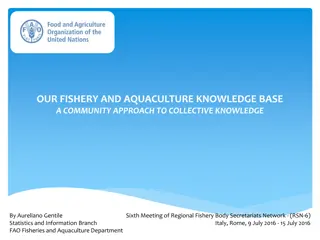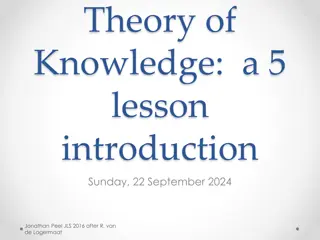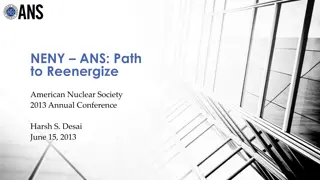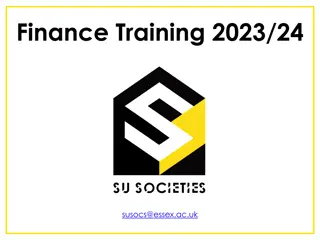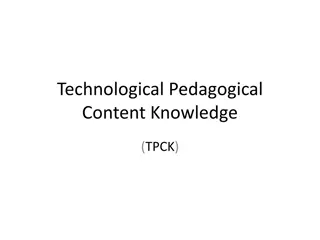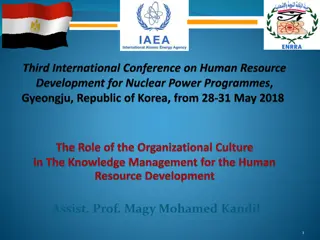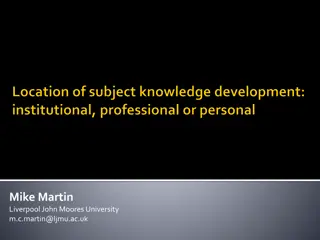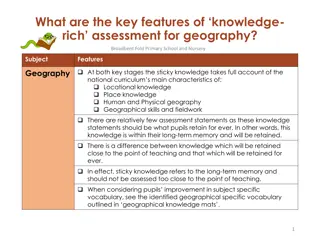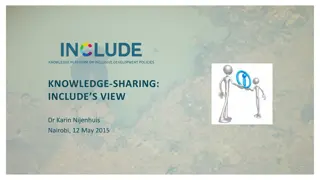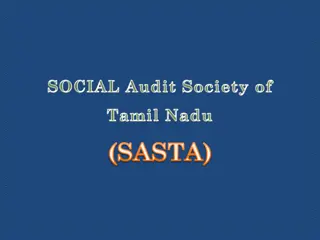Society 5.0 - Co-creating the Future
The concept of Society 5.0 for SDGs in this informative presentation by NAKAJIMA Koh, Deputy Director at Keidanren (Japan Business Federation). Discover how technological advancements and digital transformation are shaping the future of society, and the role of social partners in creating a data-dri
17 views • 37 slides
Pi Mu Epsilon Honor Society Induction Ceremony and History
The 49th Annual Induction Ceremony of the North Carolina Zeta chapter featured advisor Dr. Russell Herman. Established to promote mathematical scholarship, Pi Mu Epsilon Honor Society has fourteen NC chapters including Duke University and UNC Chapel Hill. The society's pledge emphasizes promoting tr
2 views • 11 slides
Understanding Civic Education and Its Importance in Society
Civic education focuses on the political and socio-cultural dimensions of citizenship, utilizing political science and educational principles. It involves various programs and studies aimed at enhancing citizens' knowledge, values, and participation in society. The conceptual paradigm of civic educa
1 views • 20 slides
Knowledge Capture
Knowledge capture is crucial for organizations to retain valuable expertise and prevent loss of critical knowledge due to employee turnover. Tacit and explicit knowledge play key roles, requiring strategic planning for retention, incentivizing knowledge-sharing culture, and implementing effective st
0 views • 6 slides
Exploring Product and Knowledge Graphs for Enhanced Information Retrieval
Dive into the world of product and knowledge graphs, uncovering the journey to a rich product graph, examples of knowledge graphs for songs, and the mission to provide comprehensive information on products and related knowledge. Discover use cases ranging from information provision to enhancing sear
3 views • 76 slides
Understanding Knowledge-Based Agents in Artificial Intelligence
Knowledge-Based Agents in AI utilize logic and knowledge representation to accept tasks, learn, and adapt to changing environments. Logic plays a crucial role in forming complex world representations and deriving actions based on inference. The central component is the Knowledge Base (KB), represent
4 views • 19 slides
Understanding Knowledge Management: Processes and Frameworks 2. In knowledge management, organizations create, share, and manage knowledge to enhance performance. It involves acquiring different types of knowledge through various means, such as perc
Knowledge Management, Organizational Objectives, Types of Knowledge, Tacit Knowledge, Explicit Knowledge
1 views • 17 slides
Geospatial Knowledge: Shaping the Future of Digital Society
Exploring the pivotal role of geospatial knowledge in tomorrow's global digital society, the Geospatial Knowledge Infrastructure (GKI) Project aims to advance the integration of digital economies, societies, and citizens through location-based services and technologies. With a focus on stakeholder e
0 views • 23 slides
Latin America Society of American Nuclear Society - Overview and Governance
The Latin American Section of the American Nuclear Society (LAS/ANS) was established in 1975 to represent nuclear professionals across Latin America. It focuses on promoting nuclear science and technology in various fields, facilitating research and education, organizing technical meetings, and fost
2 views • 43 slides
Pedagogical Shift in Physical Science: Constructing Knowledge Through Learner-Centered Experiences
There is a significant pedagogical shift in physical science education from viewing science as a fixed body of knowledge to emphasizing the process of constructing knowledge. Learners are now placed at the center stage, engaging in inquiry-based learning, critical thinking, and collaborative interac
3 views • 21 slides
Understanding Civil Society: Concepts, Challenges, and Implications
Explore the dynamics of civil society, from its dense network of groups to its role in democracy. Delve into the typology of Civil Society Organizations, the connection between civil society and democracy, and the unique landscape of civil society in Norway. Engage in thought-provoking discussions o
0 views • 9 slides
Importance of Knowledge Retention in Organizations
Organizations face negative impacts on performance due to the loss of knowledge. Strategies such as exit interviews, mentorship, and knowledge sharing tools are vital for effective knowledge retention. Assessing knowledge retention maturity through various techniques is crucial, aligning with ISO st
0 views • 11 slides
Understanding Modes of Thinking and Knowledge Development
Man's acquisition of knowledge is intricately linked to his ability to think, reason, and perceive. Knowledge is a result of experiences gained through perception, intellect, and intuition. The history of humanity is a story of knowledge acquisition and development, with man at the forefront as the
1 views • 18 slides
Understanding Applied Geomorphology and Its Importance in Society
Applied Geomorphology is a vital field of science focusing on how geomorphic landforms and processes impact society and vice versa. It provides solutions to problems such as coastal erosion, landslides, and river management. By applying geomorphic knowledge, scientists, engineers, and decision-maker
1 views • 7 slides
Effective Knowledge Retention Strategies in Workforce Planning and Analytics
Retaining knowledge is crucial for organizations to enhance customer service, foster innovation, improve efficiency, and bridge skill gaps. This article explores the significance of knowledge retention, the types of knowledge essential for succession planning, and two effective strategies - the Know
1 views • 10 slides
Exploring Knowledge Base Construction and Commonsense Knowledge in Fiction
Delve into innovative research interests focusing on knowledge base construction using fictional texts as archetypes, taxonomies for constructing knowledge bases, and extraction of commonsense knowledge from diverse sources. Challenges such as sparsity and semantics are addressed through comprehensi
3 views • 48 slides
Understanding the Elements of Society: Society, Community & Education
Society is a complex web of social relationships characterized by likeness, inter-dependence, and cooperation among individuals. It is not just a group of people but a system of organized associations and communication within a community. With elements like similarity, diversity, inter-dependence, a
0 views • 23 slides
Knowledge Transfer Toolkit for Organizational Success
This toolkit, developed by the Commonwealth of Virginia DHRM in June 2020, covers the essentials of knowledge transfer, including its definition, impact, challenges, and management strategies. It emphasizes aligning knowledge transfer with strategic goals, overcoming barriers through leadership supp
2 views • 15 slides
Evolution of Freebase and the Google Knowledge Graph
Freebase was initially created in 2005 as an open shared database of knowledge, later acquired by Google and absorbed into the Google Knowledge Graph. Its approach included crowdsourcing updates and additions, focusing on data rather than text. The schema of Freebase included around 1500 types, 3500
1 views • 12 slides
Enhancing Civil Society Engagement in GEF Programs: A Path to Sustainability
This article explores the significant role of civil society organizations (CSOs) in the Global Environment Facility (GEF) programs, highlighting the GEF's efforts to foster dialogue and collaboration between CSOs and stakeholders. It delves into the historical context, objectives, and roles of CSOs
0 views • 10 slides
Understanding Knowledge Representation in Artificial Intelligence
In AI, representing domain knowledge is crucial and comes in various forms like predicates, rules, and search space states. Deciding the level of specificity and form of representation is key. Knowledge can be categorized into procedural, domain, and common sense knowledge, available in forms such a
2 views • 32 slides
Enhancing Civil Society Engagement in the Global Financing Facility (GFF)
Explore key tools and strategies for enhancing civil society engagement in the GFF, including the Civil Society Engagement Strategy, guidance notes, CSO resources, and the value of civil society in RMNCAH+N. Learn how civil society can contribute to advocacy, monitoring, accountability, and more tow
0 views • 16 slides
California Society Membership and Dues Reconciliation Processes
Dive into the membership and dues reconciliation procedures of the California Society, highlighting key dates, life membership programs, and documentation requirements. Learn about old and new life member programs, important deadlines, and the significance of each step in the reconciliation process
0 views • 24 slides
Exploring Epistemology: Understanding Knowledge and Truth
Epistemology delves into the nature of knowledge, understanding, wisdom, and justification, questioning the extent of human knowledge and the different kinds of knowledge. It explores skepticism and conditions on propositional knowledge, discussing whether knowledge implies truth and the debate betw
1 views • 54 slides
Understanding Intellectual Freedom in American Society
Explore the concept of intellectual freedom as a core value in American society, emphasizing the importance of liberty, democracy, and the exchange of ideas. Academic and intellectual freedom are crucial for the advancement of knowledge and the functioning of a democratic society, allowing individua
0 views • 45 slides
Monitoring and Recovery of Abacha Loot in Nigeria: The Civil Society's Advocacy Efforts
Civil society in Nigeria, led by organizations like ANEEJ, has been actively involved in monitoring and advocating for the recovery and transparent disbursement of assets stolen by the Abacha regime. Through initiatives like MANTRA, they have ensured that returned funds are used for the benefit of t
0 views • 10 slides
Navigating the World of Big Data, Knowledge, and Crowdsourcing
The world has evolved into a data-centric landscape where managing massive amounts of data requires the convergence of big data, big knowledge, and big crowd technologies. This transformation necessitates the utilization of domain knowledge, building knowledge bases, and integrating human input thro
1 views • 5 slides
Enhancing Fisheries and Aquaculture Knowledge for Sustainable Development
The Fishery and Aquaculture Knowledge Base, presented at the Sixth Meeting of Regional Fishery Body Secretariats Network, focuses on collective knowledge exchange in the fisheries and aquaculture sector. This knowledge hub offers a wealth of information on various aspects, supporting Sustainable Dev
0 views • 13 slides
Exploring the Nature of Knowledge in Theory of Knowledge
Delve into the essence of knowledge with Jonathan Peel's introduction to Theory of Knowledge, pondering on how different disciplines perceive knowledge, the impact of empirical questioning, and timeless wisdom on ignorance and progress. Explore the concept of basic knowledge and its implications, in
0 views • 37 slides
Revitalizing American Nuclear Society: Strategies for Success
The content discusses the revitalization efforts of the American Nuclear Society, focusing on key areas such as organizational and leadership changes, refocused vision and strategy, accountability, and culture change. It outlines the challenges faced by the society in June 2011 and presents a roadma
0 views • 18 slides
Understanding Modelling Knowledge and Knowledge Representation
Explore the significance of modelling knowledge through knowledge representation, making it explicit, independent, and reusable. Learn why knowledge representation is essential and how it facilitates exchange, query, inference, and visualization. Delve into examples of knowledge application in vario
0 views • 30 slides
Understanding Society Finances: Roles, Accounts, and Reports
Roles and responsibilities of society finance leaders, managing society accounts, understanding weekly finance reports, and handling membership funds and other income sources. Emphasis on the importance of using only the official society account and receiving and reviewing weekly finance reports.
0 views • 36 slides
The Knowledge Exchange Concordat: Driving Societal Impact Through University Collaboration
The article discusses the development and transparency of knowledge exchange activities in universities, emphasizing societal impact and cross-fertilization of missions. It explores the origins of the Knowledge Exchange Concordat (KEC), key challenges in commercialization and technology transfer, an
0 views • 16 slides
Understanding Technological Pedagogical Content Knowledge (TPCK)
Technological Pedagogical Content Knowledge (TPCK) is a framework developed by Punya Mishra and Matthew J. Koehler that integrates content, pedagogy, and technology for effective teaching. TPCK emphasizes the interaction between these three key components to enhance technology integration in educati
0 views • 55 slides
Enhancing Human Resource Development through Knowledge Management
Monitoring and improving human performance in nuclear facilities is a key challenge, with knowledge management playing a crucial role in increasing staff competence. Organizational culture influences knowledge-sharing success. Explore the components of knowledge management, its importance in nuclear
0 views • 17 slides
Understanding Subject Knowledge Development in Education
Exploring the complexities of subject knowledge development in education, this study delves into areas such as students' existing knowledge, competencies, and the role of institutions in shaping knowledge acquisition. The focus lies on personalizing knowledge to individual needs rather than a fixed
1 views • 22 slides
Key Features of Knowledge-Rich Assessment in Geography at Broadbent Fold Primary School
Broadbent Fold Primary School emphasizes sticky knowledge in geography assessment focusing on locational knowledge, place knowledge, human and physical geography, and geographical skills. Assessment statements aim to facilitate long-term retention of knowledge, vocabulary acquisition, and fieldwork
0 views • 8 slides
Knowledge Sharing and Inclusive Development Policies
Knowledge Platform on Inclusive Development Policies (INCLUDE) focuses on enhancing research utilization in policy-making to foster more inclusive development. It was established in 2012 with the aim of bridging the gap between research and policy processes in African countries. INCLUDE engages expe
0 views • 8 slides
Overview of Social Audit Society of Tamil Nadu (SASTA)
The Social Audit Society of Tamil Nadu (SASTA) was established in 2012 with the aim of promoting transparency and accountability in governance. Since its inception, SASTA has focused on recruitment, training, and capacity building initiatives for staff and stakeholders involved in social audit proce
1 views • 19 slides
University of Toronto Graduate Nurses Student Society Overview
The Graduate Nurses Student Society (GNSS) at the University of Toronto represents and advocates for graduate nursing students. It provides leadership, social involvement, mentorship activities, and promotes student-faculty engagement. The society's current executive team and council structure are o
0 views • 12 slides


